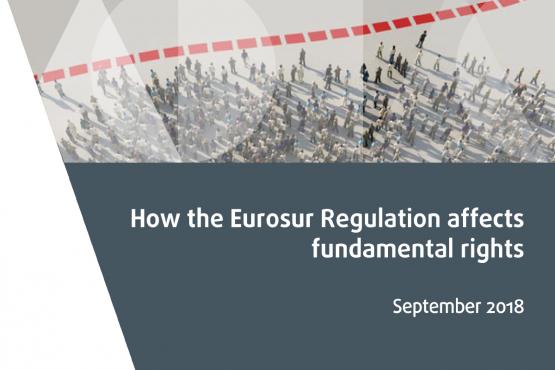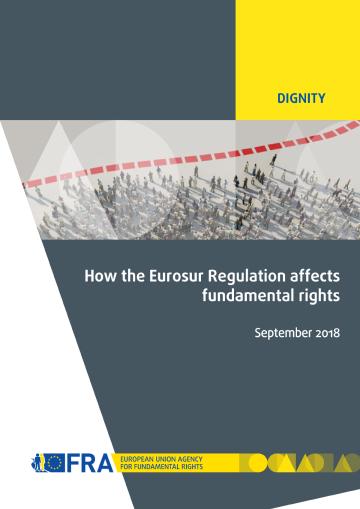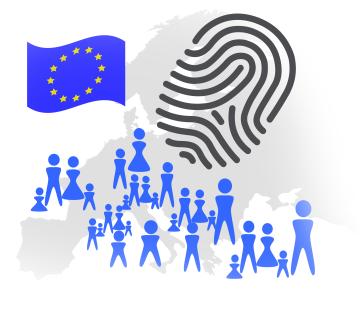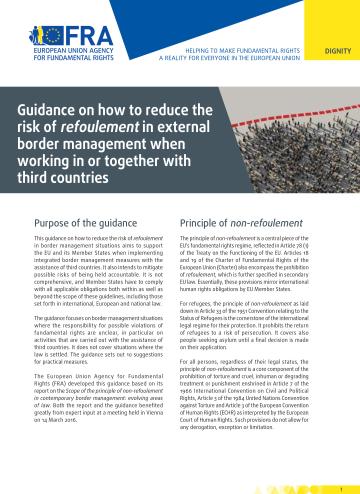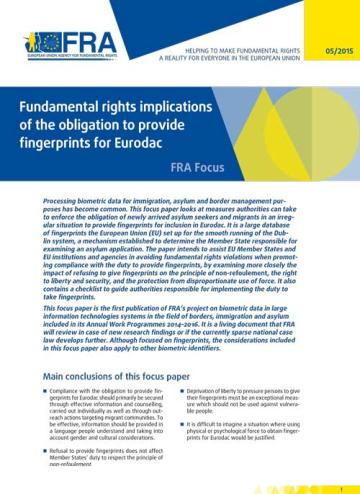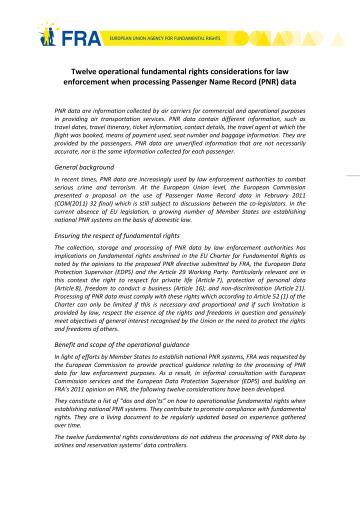Grenzen und Informationssysteme
Highlights
- Handbook / Guide / Manual8Oktober2025The Entry/Exit System (EES), launching in 2025, will register non-EU nationals crossing the EU’s external borders. This FRA guidance supports managers overseeing the operation of the new system. It helps them to ensure compliance with EU fundamental rights. It outlines operational considerations: clear communication, dignified biometric data collection and data protection. It also addresses staff training needs. Based on fieldwork at 10 border crossing points in 6 Member States, the guidance will ensure rights are respected under the new system. A separate guidance publication for border guards accompanies this publication.
- Report / Paper / Summary12September2018In November 2017, the European Commission requested FRA’s support in evaluating the impact on fundamental rights of the European Border Surveillance System (Eurosur) Regulation. Further to this request, FRA reviewed the work of the European Border and Coast Guard Agency (Frontex) and analysed cooperation agreements concluded by EU Member States with third countries which are relevant for the exchange of information for the purposes of Eurosur. This report presents the main findings of such review.
- Opinion / Position Paper19April2018This Opinion by the European Union Agency for Fundamental Rights (FRA) aims to inform the European Parliament position concerning legislative proposals on interoperability between EU information technology systems (IT systems) presented on 12 December 2017 and currently discussed by the EU legislators.
- Handbook / Guide / Manual5Dezember2016Die EU-Mitgliedstaaten beteiligen sich immer häufiger an Maßnahmen des Grenzmanagements auf hoher See, die in oder in Zusammenarbeit mit Drittländern und an den EU Grenzen stattfinden. Derartige Maßnahmen bergen die Gefahr, gegen den Grundsatz der Nichtzurückweisung zu verstoßen. Dieser Eckpfeiler des internationalen Rechtsrahmens für den Schutz von Flüchtlingen verbietet die Rückführung von Personen in ein Land, in dem ihnen Verfolgung droht. Die vorliegenden Leitlinien enthalten konkrete Vorschläge, wie das Risiko der Zurückweisung in solchen Situationen verringert werden kann – ein praktisches Instrument, das unter Mitwirkung von ExpertInnen anlässlich eines Treffens in Wien im März 2016 entwickelt wurde.


